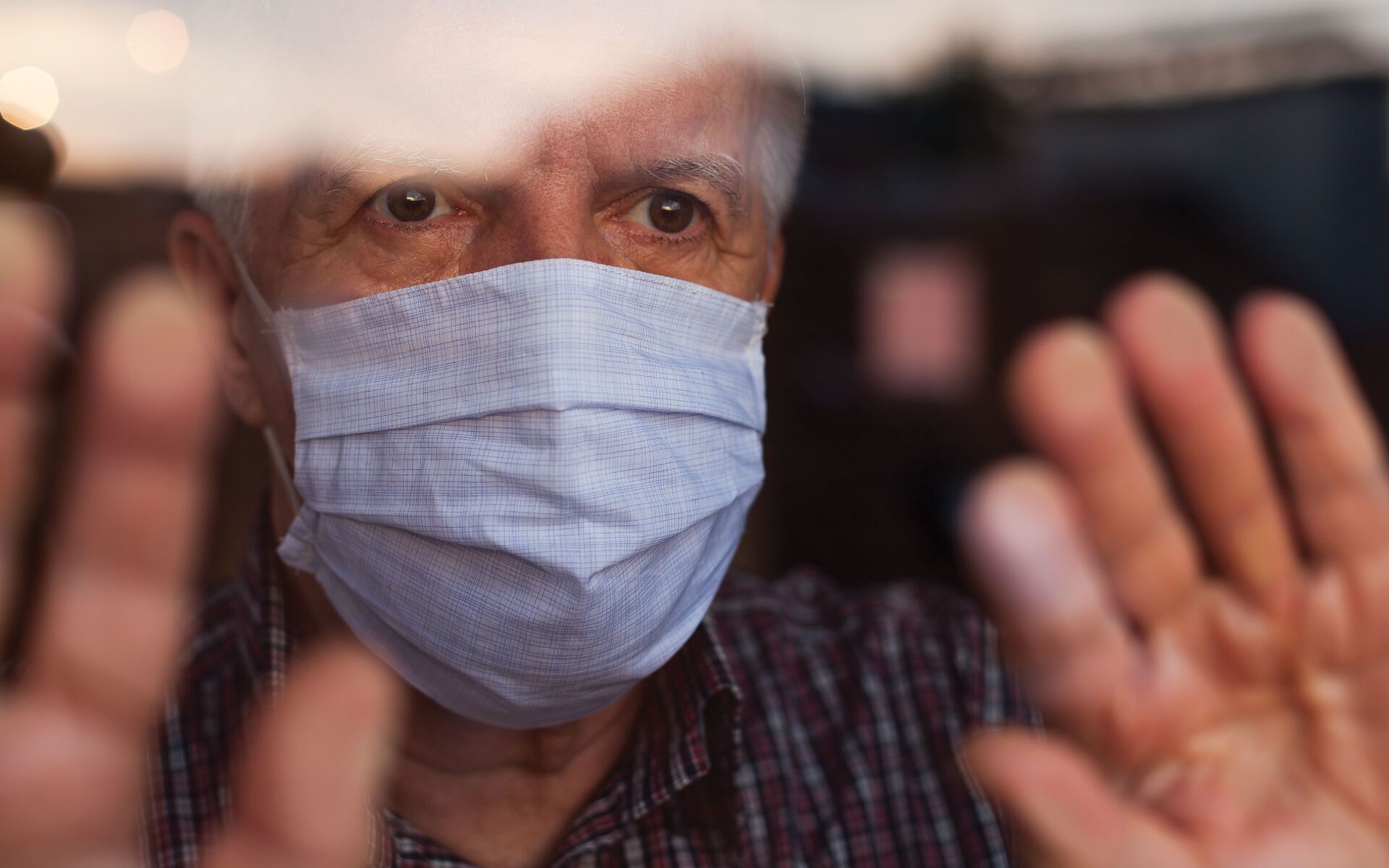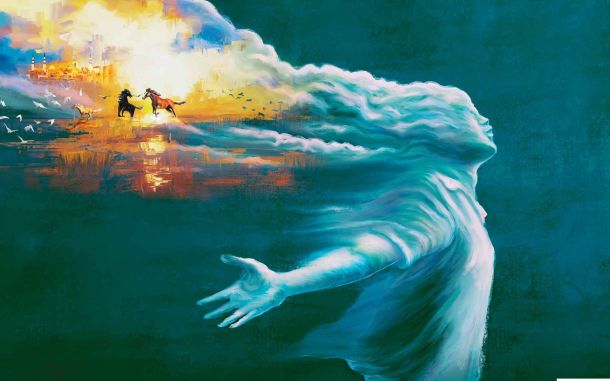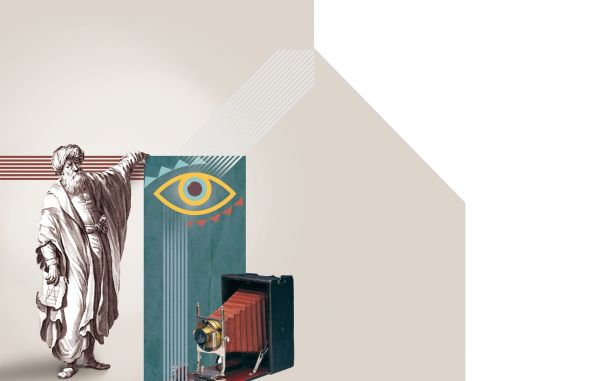The 91-Year-Old Man Who Is My Father

In This Article
-
The 91-year-old man who is my father has now been locked down (or do I mean locked up?) for nearly a year. The walls of his two-bedroom flat have become his cell. There is a world outside those walls, but he is afraid to step beyond them.
-
My father is allowed outside so we celebrate his 91st birthday in the car park. It’s a warm afternoon in May and we sit in two deckchairs, with diet cola and chocolate cake passed over a two-metre space between us.
-
This isn’t a numbers game – this is a people game. Every one in that 1,000, 10,000, 100,000 is (was?) a human being like the 91-year-old man who is my father.
The 91-year-old man who is my father is slowly going insane. His conversation is rambling, his ideas are fractured, he is jumping from one subject to another, he is telling me a story he already told me two minutes earlier.
The 91-year-old man who is my father has now been locked down (or do I mean locked up?) for nearly a year. The walls of his two-bedroom flat have become his cell. There is a world outside those walls, but he is afraid to step beyond them – afraid because that world could kill him. He is choosing a prison sentence over a potential death sentence. What a choice.
We had less than 24 hours’ notice that the assisted accommodation where my father has his flat was to lock down and the restaurant to shut. At the local supermarket, I stared in dismay at empty shelves where bread, tissues and toilet roll had sat. But I gratefully collected seven mismatched ready-meals. At the till, the teenage assistant said ready-meals were limited to two-per-shopper. I explained and I begged and the middle-aged woman on the next till leaned over and said, “that’s fine, special circumstances.”
The younger man who was my father lived life to the full. He managed a company, he brought up a family, he had friends, hobbies, a season ticket to Wolverhampton Wanderers, he loved to play cards, he collected stamps, he listened to music, he read books and newspapers.
Today, his stamp albums sit in drawers and his books are in boxes because he can’t concentrate, his music is silent because he can’t work the CD player, his friends can’t visit because they’re also locked down, he is banned from football stadiums and his family is banned from visiting him.
Day after day, the 91-year-old man who is my father looks at the television. He watches quiz contests, he watches sport, he watches antiques shows, he watches the news.
He asks again and again, “How many have died today? I saw it on the news, but I can’t remember. The numbers keep going up.”
It’s all about numbers, 1,000; 10,000; 100,000, like the winnings of one of his quiz games or the football scores. The numbers keep climbing the more we keep guessing. But this isn’t a numbers game – this is a people game. Every one in that 1,000, 10,000, 100,000 is (was?) a human being like the 91-year-old man who is my father. A human being with a name, a face, a personality, a family, friends, hobbies. Did they leave behind a stamp collection, boxes of paperbacks, their favorite CDs, loved ones they hadn’t seen for months?
Television brings faces, people, color and life into the flat of the 91-year-old man who is my father. People talk to him, they share their stories, they play their games with him, they kick their footballs into his lounge. News presenters become his confessors, quiz show hosts his experts, football managers his wisdom. Who could be alone with hundreds of faces on the small screen?
My father is allowed outside so we celebrate his 91st birthday in the car park. It’s a warm afternoon in May and we sit in two deckchairs, with diet cola and chocolate cake passed over a two-metre space between us. He’s given up wearing a hearing aid and e had the traffic noise means he can’t hear what I say. He has no stories for me to listen to, so we become silent. He soon tires and wants to go back inside, to the safety of his four walls. I wrap up a piece of chocolate cake “for later, or tomorrow” and pack the deckchairs back into the boot.
We have a couple of outings for his hospital appointments. I make him sit in the back of the car “two metres apart, Dad,” and keep the window open, anything to minimize the risk. At the hospital, the floodgates open and he talks to the nurses and doctors in a torrent of words where facts and symptoms become confused with memories, stories and complaints. Still he talks and the kindly staff don’t try to dam the flow, they just allow it to wash around them. They have become used to this.
There is a time for hope. In the summer the prohibition is lifted and this 52-year-old daughter enters her father’s flat after four months of banishment. I find four months of post, piled up and overflowing on the sofa, four months of dust on the mantelpiece, four months of ice built up in the freezer. There has been four months of isolation, desolation and incapacity. In the grip of a depressive listlessness, the 91-year-old man who is my father hasn’t done things. The post, the dust, the ice have sat, like him, immobile in front of the television.
Like the proverbial new broom, I sweep in – dusting, vacuuming, scrubbing, changing dead batteries and light bulbs, sorting post into piles, throwing away out-of-date letters and out-of-date food. Chatting, sharing, filling the flat with action, movement and interaction. But not touch – with gloves and masks we sit on opposite sides of the room and every time the 91-year-old man who is my father tries to approach I back off, keeping the essential two metres between us.
He has other visitors. My 50-year-old brother (whose birthday celebrations have been put on hold) lives nearby and can now pop in. My 54-year-other brother lives ‘Up North’ and drives down to see our father while he can. For a short time, the 91-year-old man who is our father is cheerful and hopeful.
We think the worst is over.
We are wrong.
Again, we have a day’s notice to lockdown but we are old hands at this now and I spend those last few hours doing all I can to lockdown-proof the flat. I teach the 91-year-old man who is my father the purpose of bleach, I update the list of daily medicines, I ensure every letter is in a colour-coded folder.
And now it’s winter and the confinement and the loneliness are even worse to bear. The nights draw in and darkness takes over. Entire days pass when the 91-year-old man who is my father does not see a soul. There are Covid cases at his flats. Lounges, dining areas, communal spaces – all are closed and residents (inmates, as my father calls them) are asked not to visit the office, to phone if they need anything.
There’s the one-day Great Escape when the 91-year-old man who is my father comes to our house for Christmas. We drive past my brother’s home so my father can wave to his grandchildren and they can shout “Happy Christmas Grandpa.” At ours, my 54-year-old husband cooks beef goulash and serves it with a glass of red wine.
“I will never be able to eat all of that,” says the 91-year-old man who is my father. He eats all of it and then asks for Christmas pudding and mince pies.
We open presents.
“You don’t need to buy me anything, I don’t need anything,” my father says. But when he carefully cuts open the gold wrapping paper to reveal new flannel pyjamas, he admits “except pyjamas, mine have seen better days.”
We do Christmas quizzes and the 91-year-old man who is my father can’t remember a single answer.
“I know this one…” he says time and again.
My brother who lives “Up North” telephones to say Happy Christmas. My father tells him: “This is the best day I’ve had all year.”
He doesn’t want to return to his flat. “It’s like a prison,” he says. “It’s so lonely, I don’t see anyone from morning until night.” But he’s too afraid to stay so when the evening comes, I drive him back. “You know you could come here again at New Year if you want,” I say. “I can come and fetch you.” I watch him, hunched over his frame, as the glass doors close behind him.
He decides against coming for New Year, it’s become too dangerous. The numbers of diagnosed and dying are rising again and the 91-year-old man who is my father is frightened again. We telephone on New Year’s Eve. He’s going to bed early, there’s no reason to stay up.
Last year we went to a party at his flats, my father, my husband and me. Residents ate sandwiches and cake, they drank wine and non-alcoholic drinks, they danced in the dining room as a singer performed requests. I asked for Abba and the man on the table next to me wanted Elvis Presley. We all held hands at midnight and sang Auld Lang Syne.
Every evening I speak on the telephone to the 91-year-old man who is my father, but the calls become shorter as he has less and less to say.
“How was today?”
“The same as yesterday, and the day before, and the day before.”
I try to be encouraging.
“Why don’t you try doing a sudoku, or maybe read a book, call one of your friends – that might cheer you up.”
But the next night he’s done none of those things. And the next night, and the next night, and the next.
The 91-year-old man who is my father is slowly going insane. His conversation rambles, his ideas are fractured, he jumps from one subject to another, he tells me a story and begins to tell it again minutes later. I lose the plot of what he’s saying and give up trying to follow, I allow the words to keep coming but I no longer understand what he means. And neither does he.
Sometimes he tells me he can’t carry on, he tells me he’s had enough, he tells me this is worse than prison. He cries.
I’m afraid he will die still locked down. That these terrible twelve months will have been the last year of his life. That after all he did, all he achieved, all the hopes and dreams for his 91 years of life, it will have ended in loneliness, confusion and fear.
He has The Jab; my brother takes him on a Saturday morning to a local gym. There they join hundreds of other elderly and vulnerable men and women on their first step to freedom. But then we learn of a friend who has died despite having the vaccination and we learn of delays for the second jab and we learn the vaccinations may not be wholly successful against the new variants sweeping the country.
The 91-year-old man who is my father is waiting for his flat to come out of lockdown. He is waiting to see human beings face-to-face. He is waiting for visitors. He is waiting to hug people, to kiss people, to touch people.
Although he is so lonely, the 91-year-old man who is my father is not alone. He is one of thousands of 91-year-old men who are fathers, 73-year-old women who are mothers, 86-year-old men and women who are grandparents isolated and desperate. They are dying to see the people they love yet afraid that seeing them will cause them to die. It’s what we value most, human contact, which has become their gravest danger.
This year can never be re-run, this time never be recaptured, this loss will never be forgotten. Those who survive, whatever the number in their age, will carry the trauma. Of babies not held, of aged relatives dying alone, of loved ones separated. We will all bear the scars of our Covid-19 stories.








